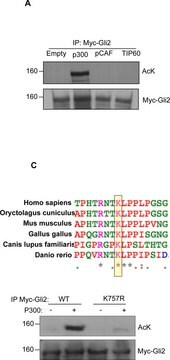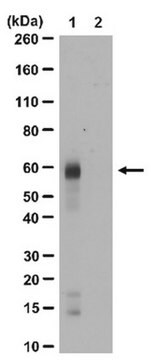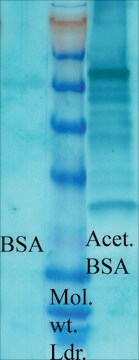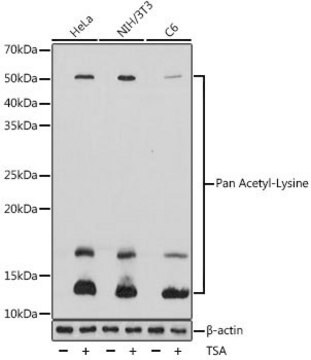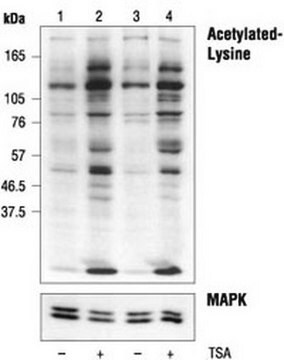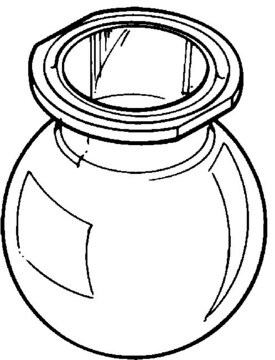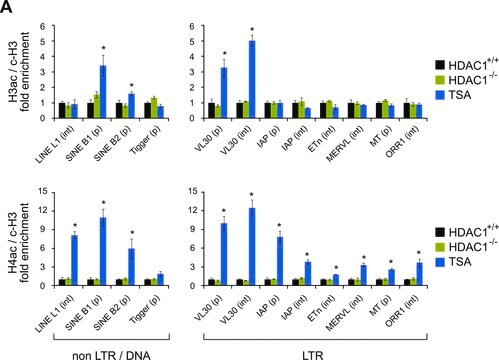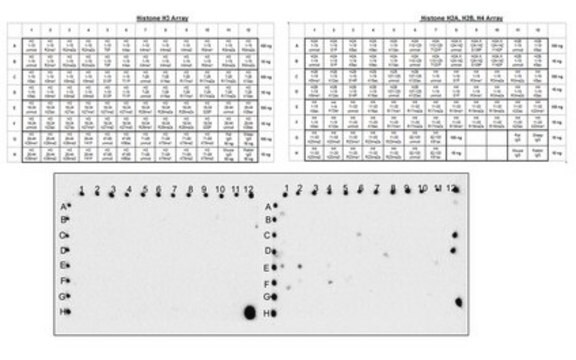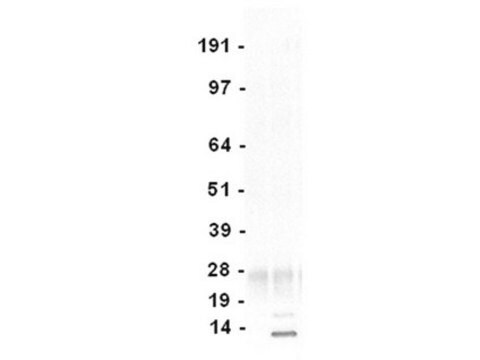AB3879
Anti-Acetyl Lysine Antibody
Chemicon®, from rabbit
About This Item
Productos recomendados
origen biológico
rabbit
Nivel de calidad
forma del anticuerpo
affinity isolated antibody
tipo de anticuerpo
primary antibodies
clon
polyclonal
purificado por
affinity chromatography
reactividad de especies (predicha por homología)
all
fabricante / nombre comercial
Chemicon®
técnicas
ELISA: suitable
immunofluorescence: suitable
immunohistochemistry: suitable
immunoprecipitation (IP): suitable
western blot: suitable
Condiciones de envío
wet ice
modificación del objetivo postraduccional
acetylation (Lys)
Descripción general
Especificidad
Inmunógeno
Aplicación
A previous lot was used at 10 µg/mg crude protein.
ELISA:
0.25-1 μg/mL of a previous lot was used.
Immunohistochemistry:
2.5 μg/mL of a previous lot was used.
Immunofluorescence:
5 μg/mL of a previous lot was used.
Optimal working dilutions must be determined by end user.
Signaling
Epigenetics & Nuclear Function
General Post-translation Modification
Histones
Calidad
Western Blot Analysis: 1:500 dilution of this lot detected lysine acylated proteins on 10 μg of Hela Acid Extract/Sodium Butyrate lysates.
Forma física
Almacenamiento y estabilidad
Handling Recommendations:
Upon first thaw, and prior to removing the cap, centrifuge the vial and gently mix the solution. Aliquot into microcentrifuge tubes and store at -20°C. Avoid repeated freeze/thaw cycles, which may damage IgG and affect product performance. Note: Variabillity in freezer temperatures below -20°C may cause glycerol containing solutions to become frozen during storage.
Nota de análisis
TSA-treated HeLa and NIH/3T3 cells, osteosarcoma tissue.
Otras notas
Información legal
Cláusula de descargo de responsabilidad
¿No encuentra el producto adecuado?
Pruebe nuestro Herramienta de selección de productos.
Código de clase de almacenamiento
10 - Combustible liquids
Clase de riesgo para el agua (WGK)
WGK 2
Certificados de análisis (COA)
Busque Certificados de análisis (COA) introduciendo el número de lote del producto. Los números de lote se encuentran en la etiqueta del producto después de las palabras «Lot» o «Batch»
¿Ya tiene este producto?
Encuentre la documentación para los productos que ha comprado recientemente en la Biblioteca de documentos.
Nuestro equipo de científicos tiene experiencia en todas las áreas de investigación: Ciencias de la vida, Ciencia de los materiales, Síntesis química, Cromatografía, Analítica y muchas otras.
Póngase en contacto con el Servicio técnico